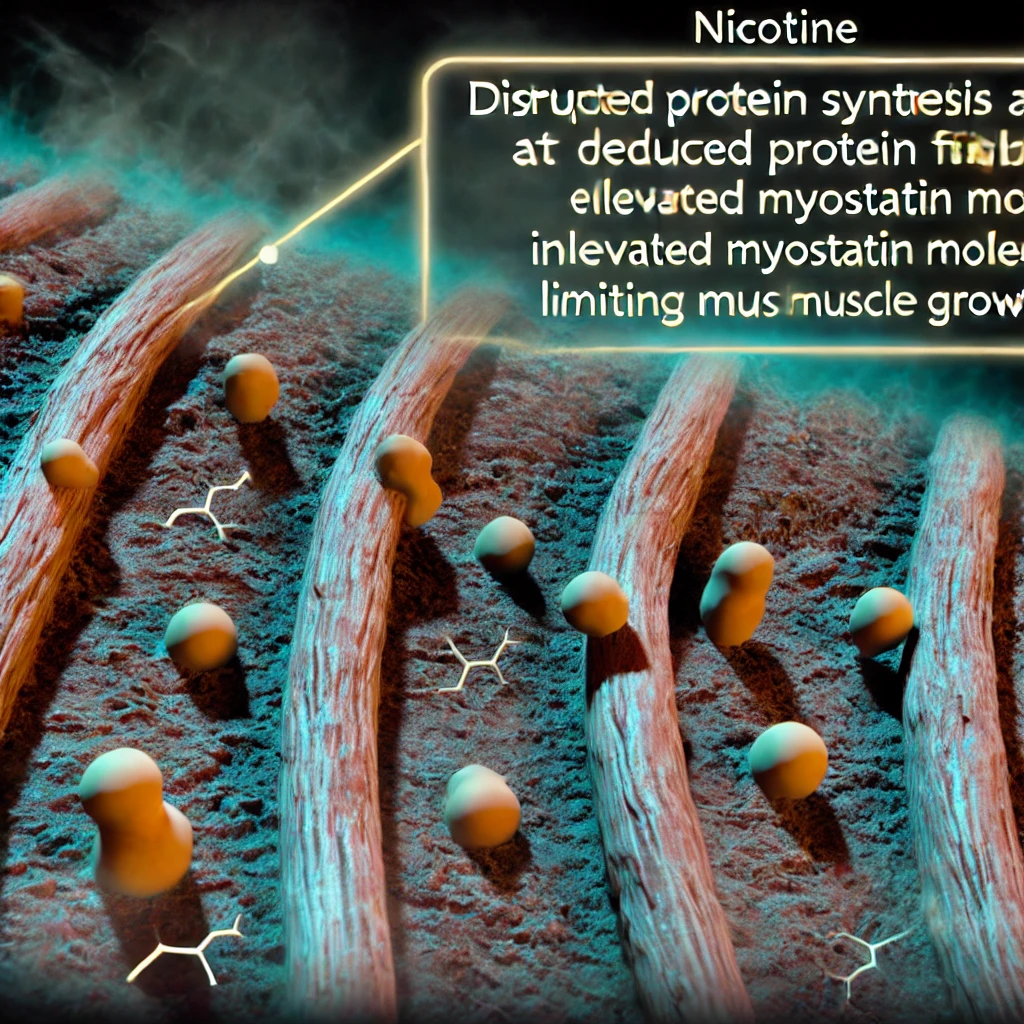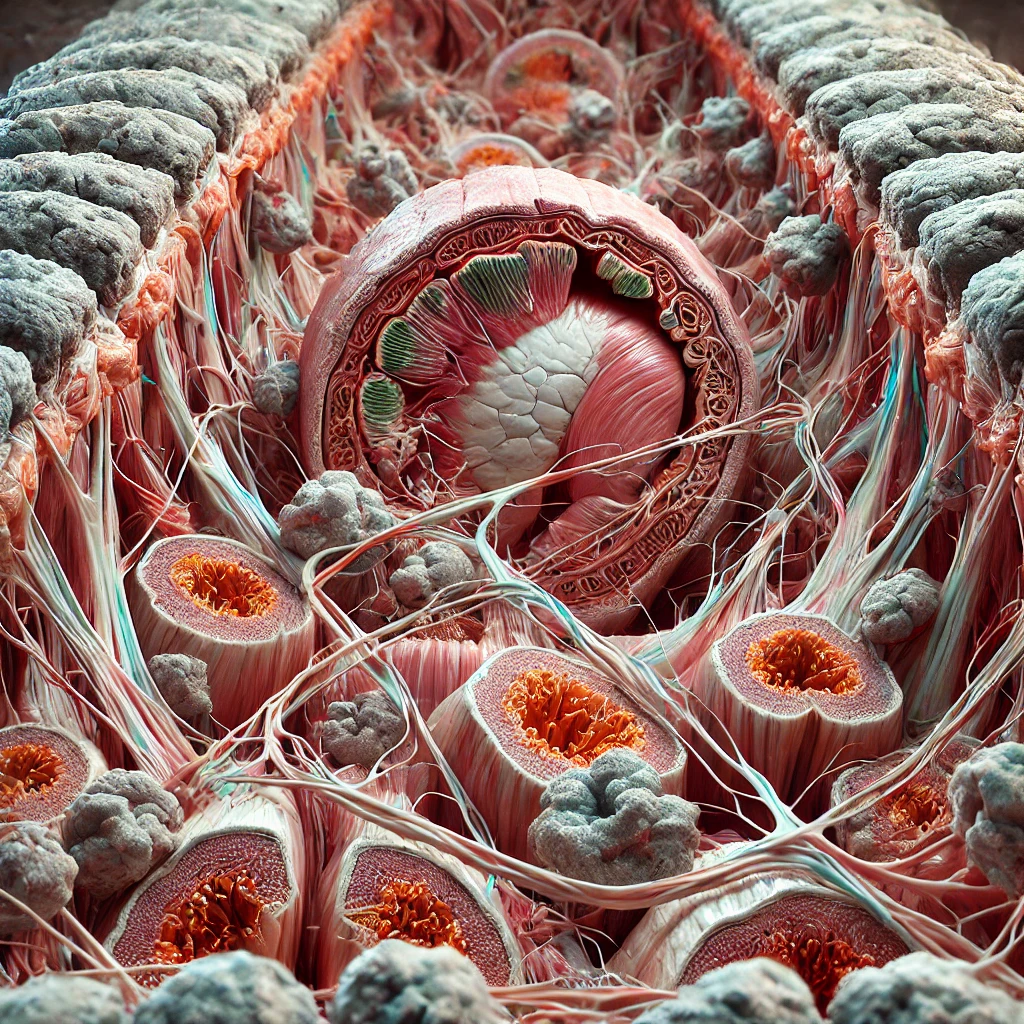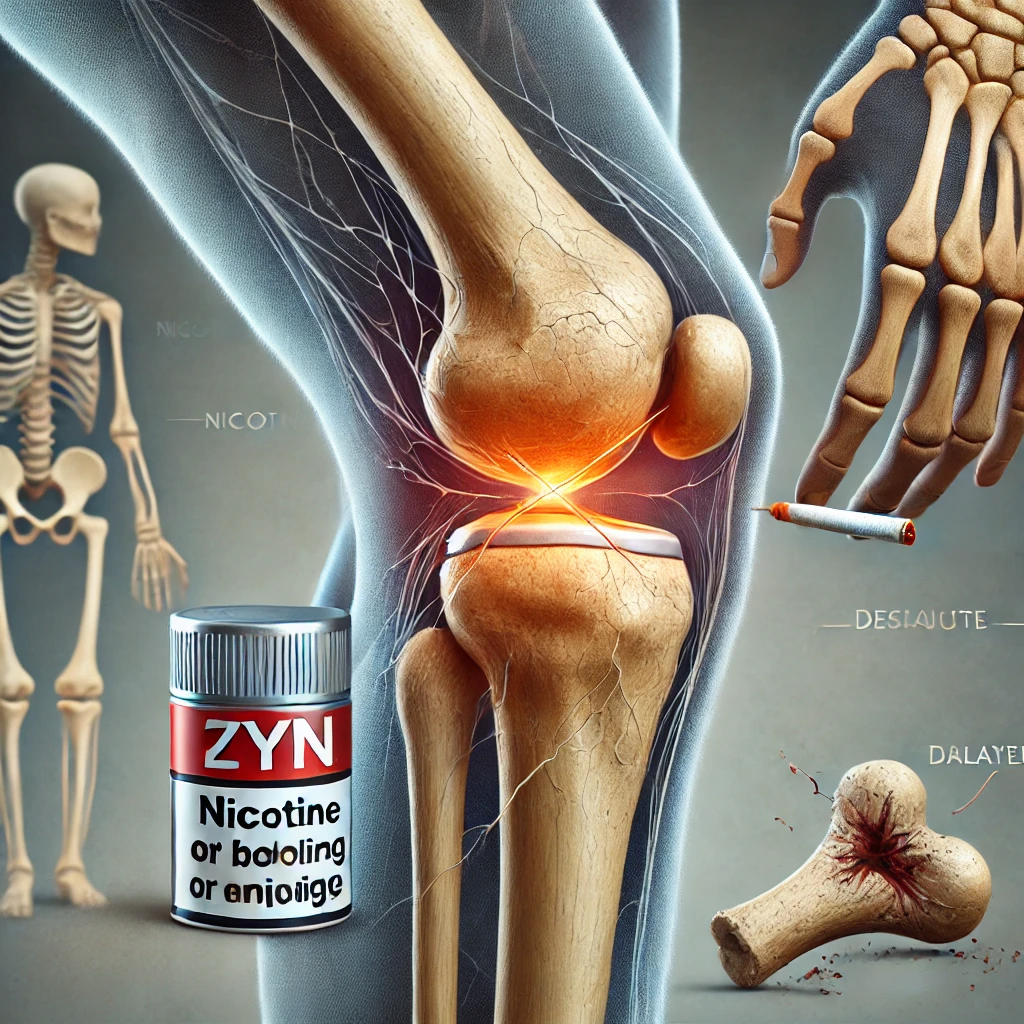
A powerful Mr. Olympia bodybuilder in a gym setting, with a bold red 'X' over the image to discourage nicotine use. A Zyn nicotine pouch in the background is crossed out, highlighting nicotine avoidance for optimal fitness, strength, and recovery.
Nicotine, consumed through products like Zyn pouches, e-cigarettes, or traditional tobacco, has profound effects on athletic performance, recovery, and injury risk. While nicotine offers some short-term benefits, such as increased focus, the long-term consequences make it detrimental for athletes striving to improve strength, endurance, and health. Below is an in-depth analysis of nicotine’s effects on fitness, supported by evidence from multiple studies.
How Nicotine Affects Muscle Growth and Strength


Reduced Protein Synthesis
Nicotine inhibits muscle protein synthesis, slowing down the body’s ability to repair and build new muscle tissue. It also increases myostatin, a protein that restricts muscle growth, which can diminish progress for bodybuilders and strength athletes (Max Health Living; Generation Iron).
Hormonal Imbalances
Nicotine disrupts hormones essential for muscle development. It lowers testosterone levels while increasing cortisol, a stress hormone that breaks down muscle fibers and reduces strength (Medical News Today; Jacob Foxx). This imbalance makes it difficult to maintain or gain muscle mass, especially during periods of intense training.
Appetite Suppression and Caloric Deficiency
Nicotine suppresses appetite, leading to insufficient caloric intake. This negatively impacts muscle recovery, as athletes require adequate calories to repair microtears and build muscle (LIVESTRONG; Get Physical). Inadequate nutrition also impairs glycogen replenishment, leading to reduced energy during workouts.
Impact on Cardiovascular Endurance and Performance

Vasoconstriction and Oxygen Delivery
Nicotine triggers vasoconstriction, causing blood vessels to narrow. This limits the amount of oxygen that reaches muscles during exercise, impairing athletic performance. The reduced oxygen supply forces muscles to rely on anaerobic metabolism, resulting in the faster buildup of lactic acid. This makes athletes tire more quickly and struggle to sustain endurance activities, such as long runs or cycling sessions. The accumulated lactic acid also causes muscle soreness and heaviness, leading to earlier fatigue (Cleveland Clinic).
Elevated Heart Rate and Blood Pressure
In addition to oxygen restrictions, nicotine increases heart rate and blood pressure by stimulating the sympathetic nervous system. This causes the heart to work harder during exercise, placing additional strain on the cardiovascular system. Over time, elevated resting heart rates can hinder cardiovascular efficiency, forcing athletes to exert more energy just to keep up. Both high-intensity and endurance-based workouts become more challenging, as the body struggles to meet oxygen demands and regulate blood flow effectively (Pro Muscle Mag; American College of Cardiology).
Endothelial Dysfunction and Reduced Lung Efficiency
Nicotine contributes to endothelial dysfunction—damage to the inner lining of blood vessels—further limiting their ability to dilate properly. This restricts blood flow and heightens oxidative stress, leading to poor circulation and increasing the risk of cardiovascular disease (American College of Cardiology). Even though products like Zyn avoid the direct lung damage associated with smoking, nicotine still impairs oxygen absorption. Athletes using nicotine report shortness of breath and reduced stamina, making it harder to maintain optimal performance levels in both aerobic and resistance-based activities (Cleveland Clinic).
In summary, nicotine creates a perfect storm for athletes by reducing oxygen delivery, increasing cardiovascular strain, and limiting muscle endurance. These effects accumulate over time, impairing long-term progress and increasing the risk of fatigue and injury during training.
Delayed Recovery and Injury Risk


Inhibited Wound Healing and Muscle Repair
Nicotine impairs the function of fibroblasts, the cells responsible for producing connective tissue and repairing muscle damage. Fibroblasts typically generate collagen and other extracellular matrix components necessary to repair microtears caused by intense training. However, nicotine disrupts these processes, delaying recovery and reducing the effectiveness of muscle repair. Additionally, it limits the production of vascular endothelial growth factor (VEGF), an essential factor for promoting angiogenesis—the formation of new blood vessels (Frontiers).
Without sufficient angiogenesis, damaged muscle tissue and tendons struggle to receive the oxygen and nutrients needed for healing. This impaired circulation exacerbates recovery delays, making athletes more vulnerable to chronic injuries and inflammation from repeated workouts. Studies show that the presence of nicotine can reduce the flexibility of connective tissues, further complicating injury recovery and repair efforts (Frontiers).
Increased Risk of Chronic Injuries
Nicotine-induced impairments in fibroblast activity and angiogenesis heighten the risk of overuse injuries like tendinitis, stress fractures, and chronic joint issues. The combination of poor recovery, inflammation, and hormonal disruptions makes athletes more susceptible to recurring injuries. The slowed healing process can result in nonunion or delayed union of fractures, increasing the likelihood of long-term damage to bones and joints, especially after surgery or major injuries (Bone & Joint Journal).
Bone and Cartilage Health
Nicotine negatively affects bone regeneration by interfering with the processes involved in building new bone tissue. This increases the chances of nonunion after fractures, meaning bones may fail to heal properly. In cases of surgery or orthopedic recovery, the lack of proper angiogenesis and reduced fibroblast activity can prolong the healing process, increasing the risk of chronic joint dysfunction (Bone & Joint Journal). Over time, athletes may experience ongoing joint pain and stiffness, reducing performance and increasing the likelihood of premature joint degeneration (Cleveland Clinic; Pro Muscle Mag).
Psychological Effects and Dependency

Short-Term Focus vs. Long-Term Dependency
Nicotine offers brief improvements in focus and concentration, but its addictive nature can lead to dependency. Athletes may rely on nicotine for energy and motivation, but withdrawal symptoms—such as fatigue and irritability—interfere with consistent performance over time (Evidence Based Muscle).
Disrupted Sleep Patterns
Nicotine disrupts sleep cycles, reducing the quality of rest that athletes need for muscle recovery and injury prevention. Poor sleep also affects mental sharpness and reaction time, further hindering athletic performance (Get Physical; LWW).
Conclusion: Why Athletes Should Avoid Nicotine
While nicotine may offer some short-term cognitive benefits, its cumulative negative effects—such as reduced endurance, impaired muscle growth, slower recovery, and increased injury risk—make it a poor choice for athletes focused on performance and health. Eliminating nicotine allows athletes to unlock their full potential by improving cardiovascular health, muscle development, and recovery. Athletes are encouraged to explore healthier alternatives, like caffeine, for energy boosts without the detrimental side effects.



